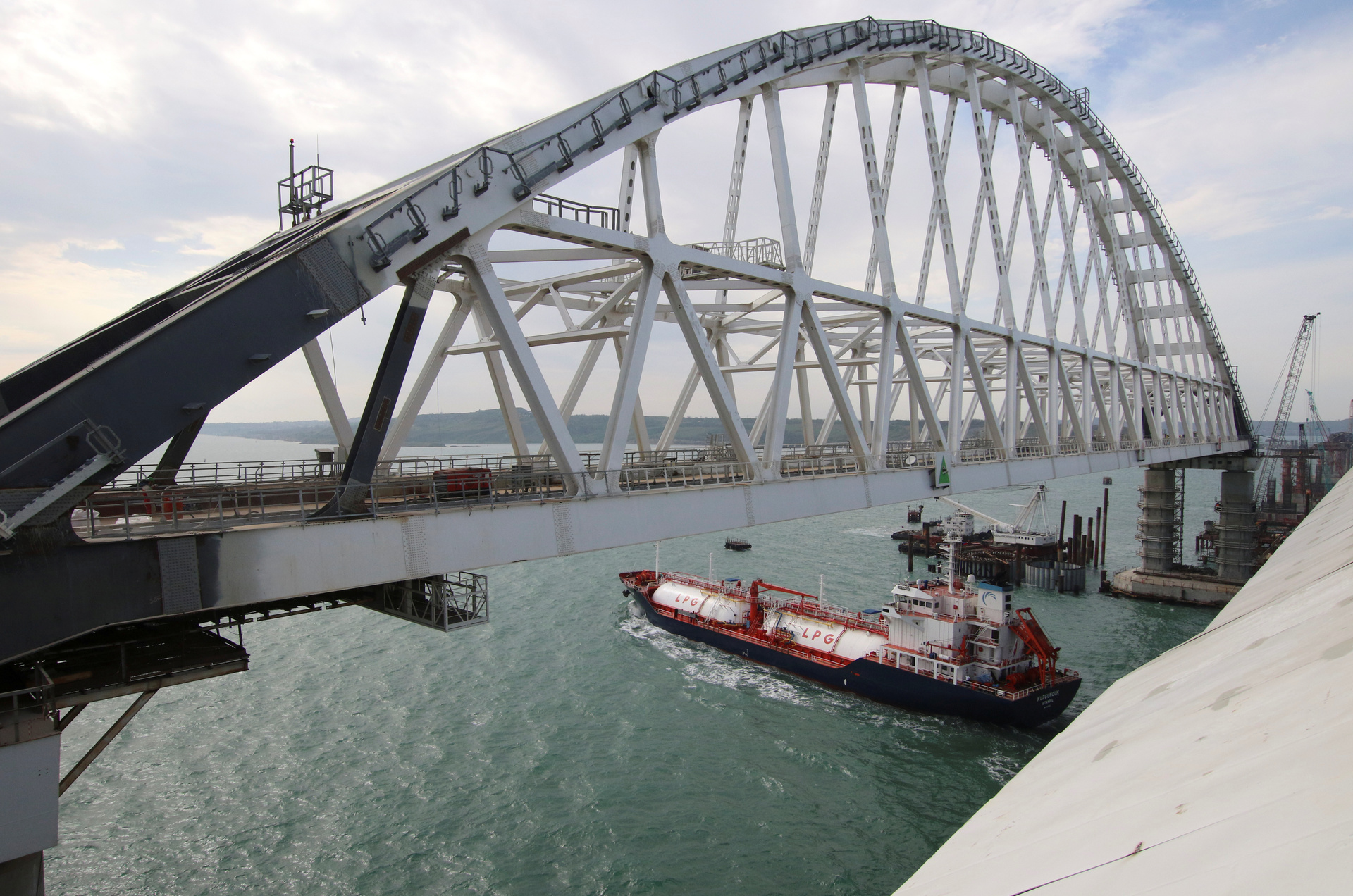The European Union has included in the sanctions list two Russians and four Russian organizations that took part in the construction of the Crimean Bridge.
Organizations of JSC Lenpromtransproekt, JSC Directorate for the construction of the Berkakit - Tommot - Yakutsk railway, FSUE Crimean Railroad and Crimean First Insurance Company were subject to the restrictions.
All of them, as noted in the document published by the EU, were somehow related to the construction of the bridge.
Also under the sanctions were the deputy director of the Stroygazmontazh company, Leonid Ryzhenkin, who was in charge of the construction project, and the general director of JSC TC Grand Service Express, Alexander Ganov.
These individuals and organizations are denied access to the EU, and if their assets are available in European banks, they will be frozen, TASS reminds.
Also, European businesses are prohibited from doing business with sanctioned companies.
The document states that the construction of the bridge is "aimed at strengthening the control of the Russian Federation over Crimea and Sevastopol and further isolating the peninsula from Ukraine."
Recall that Crimea became a Russian region after a referendum held there in March 2014, in which most of the inhabitants of the peninsula spoke in favor of reunification with Russia.
Reuters
© Pavel Rebrov
Sergei Tsekov, a member of the Federation Council Committee on Foreign Affairs, in a conversation with RT, noted that these sanctions would not have any impact on Russia, and added that the EU "can no longer turn away from the path of imposing restrictions."
“They have embarked on a certain path, have set a direction for themselves and cannot turn from it.
One gets the same impression as in the socialist competition that was during the Soviet Union: who will introduce more sanctions against Russia.
So they are competing, ”the parliamentarian noted.
State Duma deputy from Crimea Ruslan Balbek called the introduction of restrictions "minor dirty tricks" and said that the annexation of Crimea is "a historical and irreversible process."
“The people who built the Crimean bridge and provided a rail link with the mainland immortalized themselves for the inhabitants of the peninsula and all of Russia.
All these sanctions are just a postscript out of impotent rage, ”Balbek said.
In July 2018, the European Union also imposed sanctions on Russian companies related to the reunification of Crimea with Russia and the construction of the Crimean bridge.
At that time, the organizations of Giprostroymost Institute OJSC, Mostotrest PJSC, Stroygazmontazh-Most LLC, Zaliv shipyard, VAD JSC and Stroygazmontazh LLC fell under the restrictive measures.
The Russian Foreign Ministry, commenting then on the EU's decision, called it "regrettable", and the adopted unilateral restrictions - illegitimate.
The department noted that such actions are an attempt to interfere in the internal affairs of Russia.
The bridge across the Kerch Strait, which connects the Crimea and Krasnodar Territory, is the longest in Russia: its length is 19 km.
The automobile part of the Crimean Bridge was opened on May 15, 2018, and Russian President Vladimir Putin took part in the ceremony.
Initially, the opening of the road section of the bridge was scheduled for the end of 2018, but the builders completed the work ahead of the contractual deadline.
On December 23, 2019, Vladimir Putin launched traffic on the railway part of the Crimean bridge, having passed it on a special passenger train from Kerch to Taman.
“The event is important both for Crimea and for Sevastopol - for the entire south of Russia, because, of course, infrastructure facilities such as the grandiose bridge that we have built will affect the entire economy.
But I want to tell you that we are not launching it from the beginning, but we are restoring this movement, ”Putin noted.
The first passenger train "Tavria", which passed the bridge across the Kerch Strait, arrived in Sevastopol on the morning of December 25, having covered 2,471 km in 43.5 hours.
Before that, on December 24, the first train from Moscow left for Crimea, after 33 hours it arrived in Simferopol.
The European Union expressed dissatisfaction with the launch of traffic on the bridge, calling the incident "another violation of the sovereignty and territorial integrity of Ukraine."

